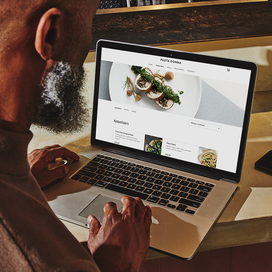Table of contents
This article is for informational purposes only and is not intended to be legal or tax advice regarding business formation. If you’re starting a business, consult with your lawyer or accountant before deciding on a structure.
Entrepreneurs have many decisions to make when they start a business. But none may have more of an impact than deciding on a legal structure for your business, also referred to as declaring a business entity.
That’s because the form of business you choose helps to determine the income tax return form you have to file. So your decision affects your taxes, your earnings, and, ultimately, your business’s bottom line.
Learn how to formalize and grow your business. Check out the Employer Launchpad.
What is a business entity?
A business entity is another name for the type of business structure a venture sets up. The type of structure has legal, tax, overall ownership and operational implications. Business entities are typically set up at the state level.
Types of business entities overviews
Here are some of the most common types of business structures you may file for when you’re starting a business.
Sole proprietorship
A sole proprietor owns a business alone and is personally liable for the company’s debts and obligations.
There are several reasons why a sole proprietorship is appealing to new business owners. First, it is the easiest business type to start and operate because you don’t need to formally register this business entity with the state.
Additionally, a sole proprietor is in complete control of the business and has total authority to make decisions. This control, of course, comes with several disadvantages as well. Because the business belongs solely to the owner, it’s all the more important to have accurate books and records to clearly delineate one’s business from one’s personal assets. This also means that any financial decision made for the business also affects the owner’s personal finances.
Tax responsibilities for entities taxed as a sole proprietorship
The owner of a sole proprietorship pays income taxes by completing a Schedule C or Schedule C-EZ, which lists all the income of your business as well as all the business expenses you may deduct. Your total net income determined on your Schedule C can then be included on your Form 1040, the U.S. individual income tax return.
Other taxes a sole proprietorship may be required to pay include:
- Self-employment tax
- Social Security and Medicare taxes
- Federal unemployment tax (FUTA)
- Excise taxes
- Property taxes
- Sales/use taxes
Starting a sole proprietorship
When you start a sole proprietorship, you don’t need to formally register the business entity with your state’s secretary of state. This saves you time and allows you to open up shop faster.
But there are still other steps to take. Start off by registering your business name and obtaining all permits at the city, state, and federal level. Also you might create a business checking account to help you better separate your business and personal finances.
General partnership
A general partnership is a business entity in which two or more people agree to share all assets, profits, and liabilities of the business. Unless agreed otherwise, all general partners may contract on behalf of the partnership business, meaning that a single general partner can bind the partnership and other partners to a contract with a third party. This means trust is a key component in the success of a general partnership business structure.
Forming a general partnership can be advantageous because you and your partner(s) can quickly make decisions and create a lean business model. General partnerships are also generally inexpensive. Unless you are hiring a lawyer to review a formal partnership agreement (which isn’t required but may be a good idea), there is little cost to start this type of business.
The informal nature of a general partnership can have drawbacks as well. Because there are no limitations on liability, all partners share the liability for issues that arise and the personal finances of all partners can be affected.
Tax responsibilities for entities taxed as a general partnership
Generally, the income/loss of a partnership is passed through to its partners and taxed at their level rather than at the entity level. According to the IRS, individual partners in a partnership file a Form 1040 and a Schedule E. Each partner receives a Schedule K-1 that can be kept for personal record and used to complete Schedule E. The partnership may be liable for additional taxes and forms, such as:
- U.S. Return of Partnership Income (Form 1065)
- Employment taxes like the Employer’s Quarterly Federal Tax Return (Form 941) and the Employer’s Annual Federal Unemployment Tax Return (Form 940).
- Excise taxes
- Property taxes
- Sales/use taxes
Starting a general partnership
To start a business as a general partnership, you have to register your business name at the state level. Check out your state’s secretary of state office to determine the required documentation for your local area.
And although your company’s existence isn’t contingent on a written agreement, you might think about creating a formal partnership agreement that a lawyer can review.
Limited liability partnership (L:P)
A limited partnership (LLP) is a type of business entity that has two or more partners, but liability and management aren’t shared equally between them.
In this case, generally the general partner(s) owns and operates the business and assume liability for the partnership while the limited partner(s) serves as an investor to the company. Limited partners usually aren’t subject to the same liabilities and often don’t have rights to make business decisions.
This is a great business entity for an entrepreneur who wants complete control of the business but needs financial support. General partners have the right to make strategic business decisions on their own. But that comes with some downside — they have unlimited liability that puts them at higher risk.
Tax responsibilities for entities taxed as a partnership
Generally this is the same as for general partnerships in that the income/loss of a partnership is passed through to its partners and taxed at their level rather than at the entity level.
Starting an LLP
Starting a limited partnership can take more time than a general partnership because of the necessary documentation. You need to draft a partnership agreement with legal assistance in order to standardize terms of the business and lay out liability. The cost of a limited partnership depends on the complexity of the partnership agreement and liability structure between the partners.
You have to file a certificate of limited partnership with your state’s secretary of state to complete this process.
Limited liability company (LLC)
A limited liability company creates a separate and distinct legal entity by isolating business assets from the members’ personal assets. LLC owners are referred to as members and there can be an unlimited number of them in this business entity.
The primary benefit of an LLC business formation is this liability protection. If a business is sued, the plaintiff can only go after the LLC’s business assets and not the owner’s personal assets.
This business entity also allows for fewer corporate formalities and potentially greater tax flexibility, compared to corporations. While this sounds appealing, there are drawbacks. Without a specific operating agreement, the departure of a member can shut down the business. The cost to file paperwork can also be more expensive than other business entity types.
Tax responsibilities for entities formed as an LLC
Tax responsibilities of an LLC depend on several formation factors. Depending on such formation factors, an LLC may be taxed as a sole proprietorship (e.g., single-member LLC), partnership, corporation, or S corporation.
Starting an LLC
An LLC must file its business with the state corporation commission or secretary of state, and many states have an additional publication requirement that can be costly. It’s wise to consult an accountant who’s familiar with the various rules and regulations during the formation process.
Corporation
A corporation is a business entity that is taxed separately from shareholders entirely, meaning the business has its own legal rights independent of its business owners. In this business formation, shareholders are not personally liable for debts or obligations beyond the initial investment.
Businesses receive several advantages when they form a corporation:
- Corporations have limited liability protection, meaning shareholders aren’t responsible for business liabilities.
- They are filed with the state through articles of incorporation or a certificate of incorporation.
- They follow an internal structure. Shareholders are the owners of the company and elect a board of directors who oversee the decision-making processes.
Tax responsibilities for entities taxed as corporations
For corporations there is generally “double taxation” as the corporation is taxed at its entity level on its income/loss, which is reflected on the U.S. Corporation Income Tax Return (1120), and its shareholders are taxed at their level.
Tax responsibilities for entities taxed as S corporations
Generally, the income/loss of an S corporation is passed through to its shareholders and taxed at their level rather than at the entity level. It should be noted that there are specific IRS requirements that must be met annually to be an S corporation. Please consult a tax or legal advisor for these requirements.
Starting a corporation
Starting a corporation requires more paperwork and time than any other business entity. You have to file for a certificate of incorporation with your state and follow that state’s protocol.
Smaller companies in the early stages of the business usually elect and file as a sole proprietor, but you have the flexibility to change your business entity as your company grows and matures. You can make a change at any stage of your business, so select a business structure based on your current state.
![]()











